
22q and COVID Warrior Fund
Beschermde donatie
This is Jaime Brighton and her daughter Aubree. Let me tell you about these 2 bad @$$es.
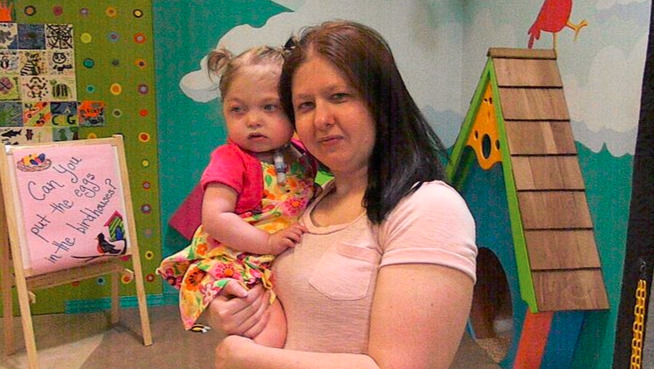
I’ve known Jaime since sixth grade. She was quiet and chill, never mean-spirited. She never quit. If things were hard, she just got it done. Jaime was born with 22q Deletion syndrome. I’ve put some vital information below about the syndrome, its outlook, symptoms, etc.
In school she worked twice as hard as the rest of us to get it done. She is funny and always 100% herself. After high school Jaime gave birth to a beautiful baby girl named Aubree… and she has 22q too Her whole world changed when Aubree was born.
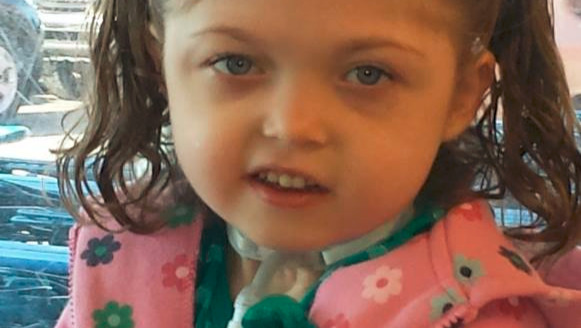
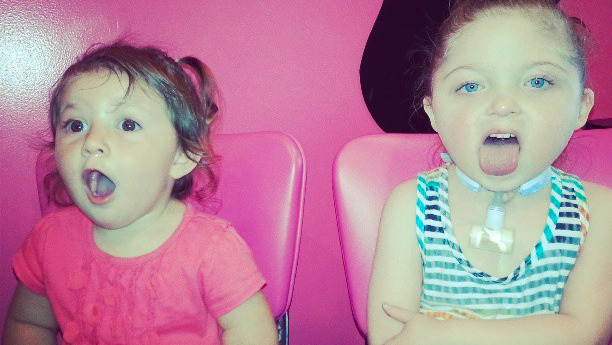
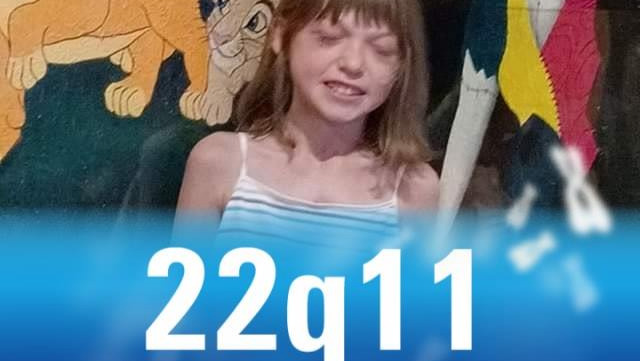
She spent months in the hospital tending to Aubree most of her young life. I’d list the surgeries and procedures but there isn’t enough room. That little girl was poked and prodded and counted out so many times but Jaime would stomp, kick and fight for her. Every time… mom is right.
Aubree was recently diagnosed with Graves Disease (Again including the information below for quick reference). This vibrant, sassy little girl spent her summer being monitored and had to rest. For a child like Aubree who loves school, hanging with friends, and being active it was a miracle that mom could keep her calm.
Aubree is scheduled to have her thyroid removed on October 18 at the University of Michigan Motts Children’s Hospital. She was admitted with pain and nausea and diagnosed with pneumonia. Jaime has been by her side every step of the way but was diagnosed last night with COVID.
The hospital policy at this time is only 2 visitors on the list. Jaime is separated from her daughter at this time. She is never far from Aubree. Their hospital stay will be lengthy. Jaime recently started a new job and they have been kind but that doesn’t pay the bills.
I don’t want Jaime to worry about a gas or electric bill until she is well enough to do so and life isn’t so complicated. She doesn’t like being a victim or getting sympathy for their condition. They are 22q Warriors. I won’t call this emergency medical help… this straight up warrior funds.
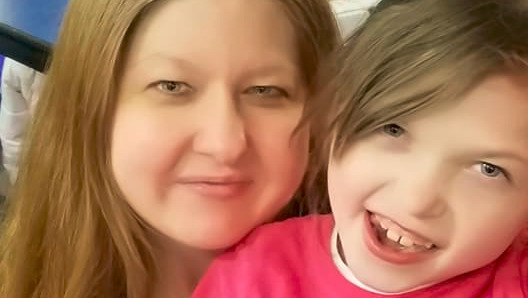
If you’re able to send a couple bucks or prayers or well wishes… all are accepted and appreciated!
22q Deletion Syndrome
This syndrome occurs in approximately 1 out of every 4,000 live births and is most often de novo, meaning the patient is the first in the family to have this deletion.
What is 22q Deletion Syndrome?
22q11.2 deletion syndrome (22q) can affect any system of the body, however most children with 22q have heart, immune, learning, speech, and/or behavior difficulties. Each person with 22q has their own unique needs, and interdisciplinary team care is the best management approach.
22q is also known as:
• DiGeorge Syndrome (DGS)
• Velocardiofacial Syndrome (VCFS)
• Conotruncal Anomaly Face Syndrome
• Autosomal Dominant Opitz G/BBB Syndrome
• Cayler Cardiofacial Syndrome
• Shprintzen Syndrome
In approximately 1 in 10 families, the deletion is present because one of the parents has the same deletion and passes it on to their baby.
What are the Symptoms of 22q Deletion Syndrome?
There are a variety of physical and behavioral disorders that have been linked to 22q11.2 deletion syndrome. The syndrome has the potential to impact every system in the body and can therefore lead to a wide-range of health issues.
The majority of these patients also have congenital heart defects, most often these are conotruncal abnormalities:
• Tetralogy of Fallot
• Interrupted aortic arch
• Ventricular septal defect (VSD)
• Vascular ring
• Truncus arteriosus
Or Palatal defects:
• Submucosal cleft palate
• Velopharyngeal dysfunction (VPD) - abnormal nasal air escape and hypernasal speech
Some of the other common problems include:
• Feeding difficulties, including nasal regurgitation of food and fluids, vomiting, gastroesophageal reflux (GERD)
• Hypocalcemia
• Gastrointestinal problems, including constipation, and GERD
• Immune system disorders, including recurrent ear infections and sinusitis, respiratory infections, and autoimmune diseases
• Kidney disorders – approximately 35 percent of these patients may have a missing or malformed kidney.
• ENT problems, including laryngeal webs and external ear anomalies
• Asymmetric crying facies
• Cleft lip and palate
• Orthopedic issues, such as scoliosis, club feet, or cervical spine abnormalities
• Inguinal, umbilical and diaphragmatic hernias
• Growth problems, sometimes associated with growth hormone deficiency
• Developmental delays, including both language and motor skills delays
• Autism
• Obsessive-compulsive disorder (OCD)
Graves Disease
Graves' disease is an immune system disorder that results in the overproduction of thyroid hormones (hyperthyroidism). Although a number of disorders may result in hyperthyroidism, Graves' disease is a common cause.
Thyroid hormones affect many body systems, so signs and symptoms of Graves' disease can be wide ranging. Although Graves' disease may affect anyone, it's more common among women and in people younger than age 40.
The primary treatment goals are to reduce the amount of thyroid hormones that the body produces and lessen the severity of symptoms.
Organisator en begunstigde
Carla Ayers
Organisator
Ypsilanti, MI
Dorothy Brighton
Begunstigde